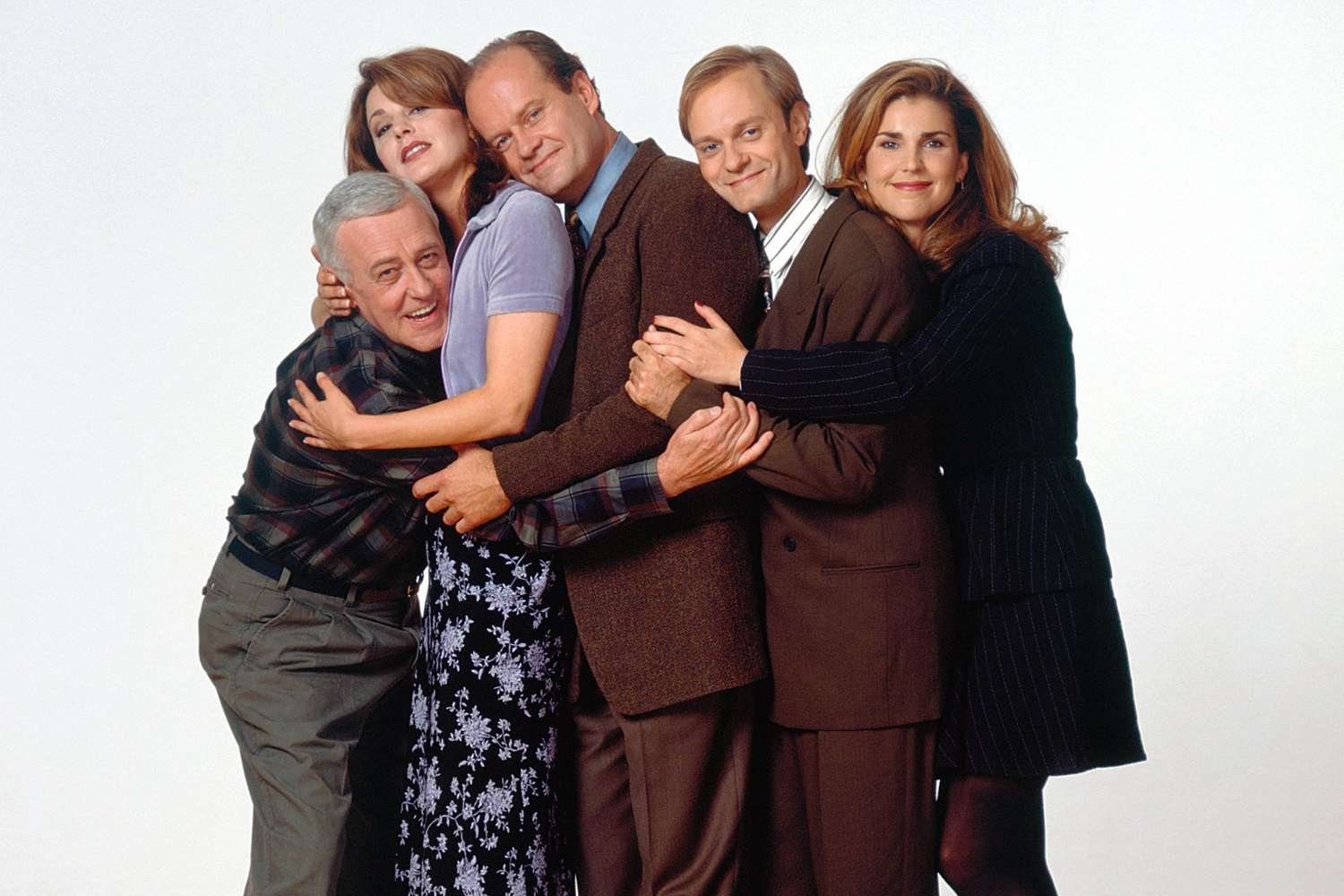Introduction
Frasier arrived as a rare sitcom that married smart humor with emotional depth, centering on a cultured, pompous yet vulnerable psychiatrist whose public persona masked private loneliness. Spun off from the barroom world of Cheers, the series followed Dr. Frasier Crane as he returned to Seattle to restart his life, host a radio advice show, and reconnect with family. What set Frasier apart was its blend of highbrow references and broad, character-driven comedy: witty repartee and wordplay sat alongside moments of genuine pathos. The show invited viewers into sophisticated settings upscale apartments, elegant restaurants, classical music concerts while grounding the comedy in very human flaws: pride, misunderstanding, yearning for connection. This article examines the core elements that made Frasier enduringly popular, explores the ensemble chemistry, and considers the program’s cultural legacy and lessons for contemporary TV makers and fans.
What Frasier Is
At its core, Frasier is a character-driven sitcom built around the professional and personal life of Dr. Frasier Crane, a Harvard-trained psychiatrist turned radio advice-giver. The format combined half-hour domestic scenes with the recurring device of Frasier’s call-in show, which allowed the series to explore topical dilemmas and comic misunderstandings in concentrated bursts. Tone-wise, Frasier was a deliberate hybrid: it favored literate, often rapid-fire dialogue and verbal jokes puns, ironic reversals, and theatrical set-pieces while never shying from physical comedy or farce when plots demanded it. Unlike many sitcoms that rely solely on situational setups, Frasier used character psychology as a wellspring of humor; Frasier’s professional expertise frequently clashed with his personal blind spots, producing situations that were funny because they were believable. The result was a show that rewarded repeat viewing: jokes landed on the surface, but emotional payoffs often accumulated across episodes and seasons.
Characters and Ensemble Chemistry
A large part of the series’ success came from its superb ensemble. Frasier’s relationships with his father Martin, his brother Niles, and the colorful supporting cast created a textured comedic world. Martin’s avuncular practicality grounded Frasier’s aristocratic pretensions, producing ongoing friction that felt heartfelt rather than merely adversarial. Niles, Frasier’s similarly refined but more neurotic brother, acted as both mirror and foil their sibling rivalry was a consistent source of laughs and yet also revealed deep affection. Secondary characters, from Frasier’s radio producer to neighborhood eccentrics and romantic interests, added variety and freshness to storylines. The interplay among players allowed scripts to shift tone quickly from intellectual banter to slapstick and back without losing coherence. Importantly, the ensemble never felt disposable: recurring characters developed arcs and history, making the sitcom’s world feel real and emotionally invested rather than a mere backdrop for one-star jokes.
Writing, Themes, and Emotional Truth
Frasier endures because smart writing anchored in emotional truth creates comedy that ages well. Writers invested in character psychology their ambitions, vanities, and vulnerabilities which meant jokes often emerged organically from who people were, not only from contrived setups. The show tackled universal themes: the search for belonging, the awkwardness of reinvention, sibling rivalry, and the bittersweet aspects of middle age. Even when the humor leaned toward erudition opera references, literary asides, or high-culture jokes the punchlines usually circled back to everyday human needs. That balance allowed different audience members to latch onto different layers: some appreciated the linguistic elegance, others the familial warmth. Additionally, Frasier demonstrated how sitcoms could be both aspirational and accessible: characters lived in an elevated social milieu, but their problems remained recognizable. That combination of craft, heart, and layered humor is why the series continues to be discovered and celebrated by new generations.
Cultural Impact and Legacy
The cultural legacy of Frasier goes beyond awards and syndication success; it reshaped expectations for sitcom sophistication and ensemble depth. The show proved that network television audiences would respond to intelligent scripts and complex family dynamics, encouraging creators to take tonal risks and invest in character-driven arcs. Frasier influenced later comedies that aimed for a similar blend of verbal wit and emotional resonance, setting a benchmark for how to balance highbrow jokes with universally relatable stakes. It also contributed to how TV depicts professions: Frasier’s dual roles as clinician and media personality anticipated modern conversations about therapists in the public sphere. Moreover, the series preserved a particular style of multi-camera, live-audience comedy that highlighted timing and physical rhythm lessons that remain useful for writers and performers. In short, Frasier left a creative footprint on sitcom craft and public perception of character-driven comedy.
Conclusion
Frasier stands as a model of how sitcoms can combine intelligence, warmth, and theatricality to create lasting television. Its success wasn’t accidental: carefully drawn characters, perceptive writing, and an ensemble willing to mine both verbal and physical comedy produced a show that entertained while also touching on deeper human concerns. For creators, Frasier demonstrates the value of crafting characters whose contradictions are sources of both conflict and compassion. For audiences, it proves that humor and heart are not mutually exclusive they work best together. Whether encountered through original broadcasts, streaming, or cultural memory, Frasier continues to offer laughs, pointed observations, and reminders that even the most polished people are, at their core, looking for connection.
FAQs
Q: Is Frasier suitable for new viewers today?
A: Yes its character-driven plots and sharp dialogue remain accessible. While some pop-culture references are dated, the emotional themes and comic setups are timeless.
Q: What makes Frasier different from other sitcoms?
A: Its fusion of literate wit and family-centered emotional stakes, plus the consistent development of recurring characters, sets it apart from more gag-driven comedies.
